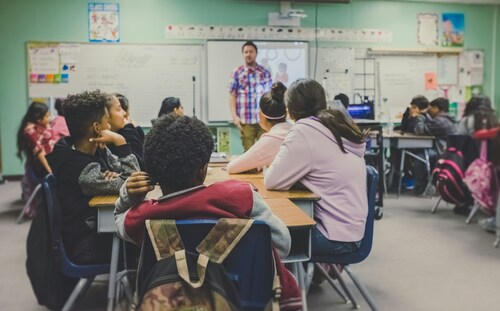In a world that’s increasingly driven by technology, coding has become an invaluable skill. For the younger generation, learning to code is no longer just an extracurricular activity; it’s a vital component of education that prepares them for the future. Coding classes for kids are gaining momentum, and for good reason. They equip children with the tools and knowledge they need to navigate, innovate, and succeed in a digital world.
The Digital Language of the Future
As we transition further into the digital age, coding is often referred to as the new literacy. Just as reading and writing are fundamental skills for communication, coding has become a primary medium through which we interact with technology. Coding classes introduce children to the language of computers, teaching them how to converse with and command the technology that surrounds them.
Cognitive Benefits and Problem-Solving Skills
Coding isn’t just about learning to write lines of computer code; it’s a gateway to better cognitive development. When kids learn to code, they’re also learning logical thinking and problem-solving. They grasp complex ideas and break them down into smaller, more manageable tasks. This analytical approach is beneficial not just in programming, but in day-to-day problem-solving across various aspects of life.
Embracing Creativity and Innovation
Unlike common perception, coding is not a monotonous task that’s limited to the realms of mathematics and logic. It’s an avenue for expression and creativity. As children learn to code, they often find themselves inventing games, applications, and systems. This fosters a spirit of innovation and gives kids a platform to bring their unique ideas to life.
Building Confidence and Persistence
As they code, children come to understand that failure is a stepping stone to success. They learn to troubleshoot issues, correct mistakes, and persevere until their program runs smoothly. These lessons in resilience and self-confidence are invaluable life skills that help shape their personality and work ethic.
Enhancing Communication and Collaboration
Coding can often be a collaborative effort. Classes encourage kids to work in teams, enhancing their communication skills as they share ideas and solutions. They learn to give and receive constructive criticism, laying the foundation for effective teamwork and leadership capabilities in the future.
Preparing for the Job Market
The job market is evolving, and technological proficiency is increasingly becoming a requirement. By taking coding classes, children gain a competitive edge early on. They are not only better prepared to meet the demands of tech-driven industries but are also equipped to explore careers in software development, cybersecurity, and data analysis, among others.
Adaptability in a Changing World
Technology is ever-changing, and adaptability is key. When kids learn coding from an early age, they become more flexible and willing to learn new skills. This trait is crucial in a future where they may have to navigate careers that don’t yet exist.
Personalized Learning Experiences
Every child is unique, and coding classes often offer personalized learning experiences that cater to individual interests and learning speeds. Whether a child is a beginner or an advanced coder, there are programs available that match their proficiency and help them grow.
Starting Early: The Optimal Age for Learning to Code
While there is no one-size-fits-all answer to the best age to start coding, early exposure can be beneficial. Classes designed for kids take into consideration developmental stages and make coding fun and engaging through the use of games and stories. This early introduction can spark a lifelong interest in technology and innovation.
Global Perspectives and Cultural Awareness
In an interconnected world, coding teaches children to think globally. They learn about different cultures and viewpoints as they engage with coding communities online or participate in international coding competitions. This broadens their horizons and fosters a sense of global citizenship.
Overcoming Gender Stereotypes
The tech industry has traditionally been male-dominated, but coding classes for kids are helping to level the playing field. These programs encourage participation from all genders, challenging stereotypes and empowering young girls to pursue interests in science, technology, engineering, and mathematics (STEM) fields.
Educational Integration and Curriculum Support
Forward-thinking educational institutions are integrating coding into their curriculums, recognising its importance alongside traditional subjects such as math, science, and languages. Coding classes provide support and enrichment to these curriculums, helping students make practical connections between their coding skills and academic knowledge.
Choosing the Right Coding Class for Your Child
With a plethora of options available, it’s essential to choose a coding class that aligns with your child’s interests and learning style. Factors like curriculum, class size, instructor expertise, and hands-on opportunities should be considered to ensure a valuable and enjoyable learning experience.
The Role of Parents and Educators
Parents and educators play a significant role in encouraging children to explore coding. By providing resources, support, and understanding the value of these skills, they can help children embrace coding education as a powerful tool for their future.
The importance of coding education in shaping future innovators cannot be overstated. Signing up for coding classes for kids is more than just an investment in a child’s current interests — it’s an investment in their ability to lead, thrive, and create in a future where technology will be an even more integral part of daily life. As we prepare our children for the challenges of tomorrow, coding stands out as an essential skill for personal and professional growth.
